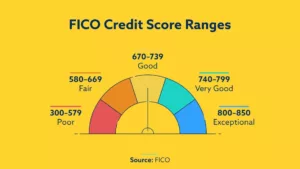
In a report by the Consumer Financial Protection Bureau it was found that some student loan borrowers are being placed in default when the co-signer of their loan dies or declares bankruptcy.
Borrowers who are forced into automatic default must either immediately repay the full loan balance or risk their credit scores being ruined. Many private student loan contracts include an option for lenders to demand the full balance of a loan when a borrower’s co-signer has died or filed for bankruptcy.
But even though a borrower may be repaying the loan as agreed, lenders are “automatically” placing paid-on-time loans into default. The report stems from over 2,300 private student loan complaints between October 1, 2013 and March 31, 2014.
The private student loan industry practice of “auto-default” is a huge problem considering approximately 90% of private student loans were co-signed in 2011. Private loans have higher interest rates and fewer protections than federal loans. To ensure repayment many borrowers are required to have someone else co-sign the loan agreement.
Often when borrowers sign a private student loan agreement it is under the assumption that they have an option to release a co-signer after a certain number of on-time payments.
Borrowers have complained they face obstacles when seeking to obtain co-signer releases even though many private student lenders advertise an option to release a borrower’s co-signer after a certain period of time of on-time payments.
Other complaints include the lack of transparency for borrowers applying for releases. Lenders and servicers generally do not set out clear criteria for borrowers seeking to release co-signers.
Without the co-signer release, borrowers can face an auto-default when their co-signer dies or files for bankruptcy.
Outstanding student loan now stands at $1.2 trillion with private student loans accounting for $150 billion. But the bulk of complaints received by government agencies is about private student loans.
The CFPB recommends that private lenders consider alternatives to the “auto-defaults” such as giving the borrower the chance to find another co-signer. Borrowers can go the CFPB website for a set of sample letters that borrowers can use to petition lenders to release a co-signer from the contract.










